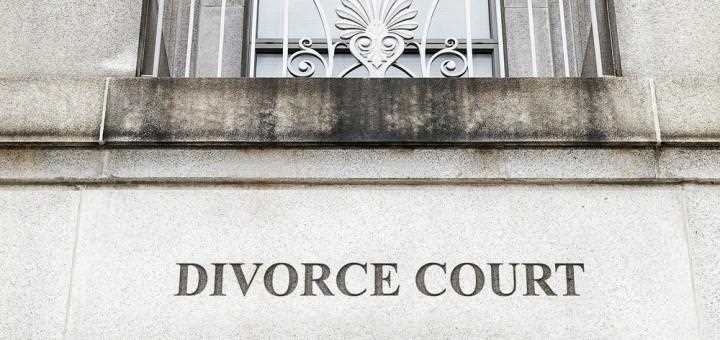There has been an increase in people going abroad for all types of cosmetic surgery, and so-called ‘Turkey Teeth’ have recently hit the headlines.
The dentistry procedure where teeth are ground down and veneers are fitted on top has become a social media phenomenon and not for the right reasons.
While patients travel abroad for cheaper procedures and shorter waiting lists, what is the result from a trip overseas if the dentistry goes wrong?
Scott Haslam, director in the medical negligence team at Wake Smith Solicitors, looks at what is behind the recent headlines, why people are choosing dental surgery abroad and what do the contracts really mean.
This article covers:
- Why an increase in people going abroad for dental treatment and other cosmetic surgery?
- Remedial treatment for Turkey Teeth and surgery performed abroad
- Lack of informed consent
- What are the options for suing?
- Your next move?
Why an increase in people going abroad for dental treatment (and other cosmetic surgery)?
There has been an increase in going abroad for cosmetic surgery especially for cosmetic dentistry and veneers.
The British Dental Association says costs for surgery are cheaper abroad due to the cost of living. Using Turkey as an example, the cost of living there is cheaper, so this will be reflected in the prices charged.
Another influencing factor highlighted by the British Dental Association is the long waiting lists for any dental procedure in the UK currently and a lack of access to NHS dentists. NHS dental access problems pre-date COVID, but the pandemic has exacerbated longstanding concerns with 40 million appointments lost as a result of the restrictions.
Of course, those wanting the perfect smile would have to meet certain criteria to have such treatment funded by the NHS and so a large number would need to go private in any event.
Cheaper clinics abroad often promise “same day teeth” and for a fraction of the UK cost, but the focus can be on money making with clients rushed through. As a result of the “speedy treatment”, teeth are virtually ground down making it easier to fit veneers onto the heavily prepared teeth. Such treatment would not ordinarily be recommended to patients in the UK.
Scott says “Anecdotally, over the past few years we have seen an increase in enquiries from people who have been abroad for cosmetic surgery. Be it dental work, breast augmentation, rhinoplasty (nose job), a face lift, tummy tuck, or Brazilian Butt Lift (also known as a BBL); we have seen it all. People often tell us that the cost of treatment was a fraction of that in the UK.”
Remedial treatment for Turkey Teeth and surgery performed abroad
With more people seeking treatment outside the UK, there has now been a rise in people needing remedial treatment afterwards, with patients ending up having to spend far much further down the line to fix the issue.
6 in every 10 of Britain’s dentists are having to fix issues caused by patients who have gone abroad to have treatments on the cheap. These figures are thought to have been fueled by the new craze for Turkey Teeth.
BBC documentary ‘Turkey Teeth’ surveyed 1,000 dentists and found that 597 said they had seen patients who had complications specifically from getting this treatment abroad.
Statistics show that around 35,000 British and Irish citizens have gone abroad for treatment in just the past year, and 63% of those considering treatments are aged 18-34.
However, dentists warn that those going abroad and paying for the extensive dental work that would be turned down here, are more likely to suffer problems in years to come as the new teeth require maintenance and replacements.
This is something that the patients could have difficulty paying for privately because NHS dentists can technically refuse to treat them.
Patients having undergone other types of cosmetic surgery abroad often find themselves in a similar position, having to pay privately in the UK to try and rectify erroneous surgery performed elsewhere.
Scott says “It isn’t just the financial cost of paying privately for further surgery in the UK when things go wrong. We have seen multiple examples of patients who have ended up with life threatening infections and have ultimately had to be treated by the NHS for an acute medical emergency.“
Lack of informed consent
There is also a potential issue with a lack of informed consent. The reality of undergoing surgery doesn’t necessarily enter into someone’s mind when they see a photo of the end result on social media.
Clinicians in the UK, including dentists but also cosmetic surgeons, have a duty of care to explain the pros and cons of treatment before patients undergo surgery.
What are the options for suing?
In summary, if you have dental treatment abroad, the chances are that the treatment, and any associated claims, will be governed by the Laws and Courts of that country. This means you will need to engage a solicitor who is qualified to advise on the law relevant to that country.
So although you may live in the UK, if you wish to pursue a claim against a dentist or doctor who has treated you in Turkey, you may need to bring a claim in Turkish courts, for which you would need to retain a solicitor specialising in Turkish law.
However, there can be exceptions to this generalisation and each case needs to be considered on its facts.
Scott says “Anyone who wishes to pursue a potential claim as a result of treatment received abroad should contact a solicitor specialising in such claims for advice. If there is a jurisdictional issue which means they cannot assist, they should point them in the direction of someone who is able to do so.
“The worst thing you can do if you wish to pursue a Claim, is choosing to do nothing. Different jurisdictions may have different periods within which a Claim can be pursued and so the best advice is to contact a solicitor as soon as possible.”
Your next move?
If you need assistance with clinical negligence matters, please contact Scott Haslam at [email protected]
Find out more about our clinical negligence services.



